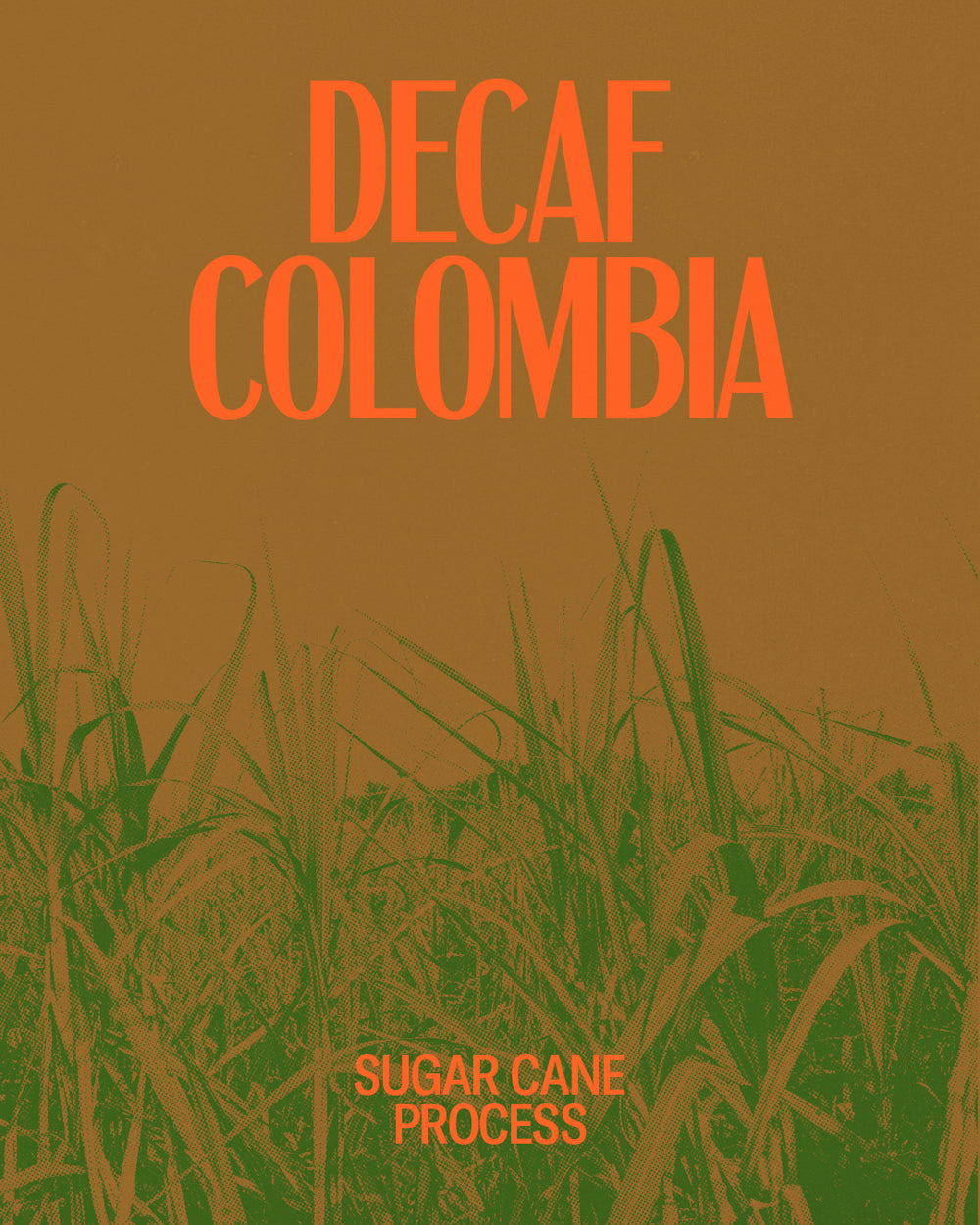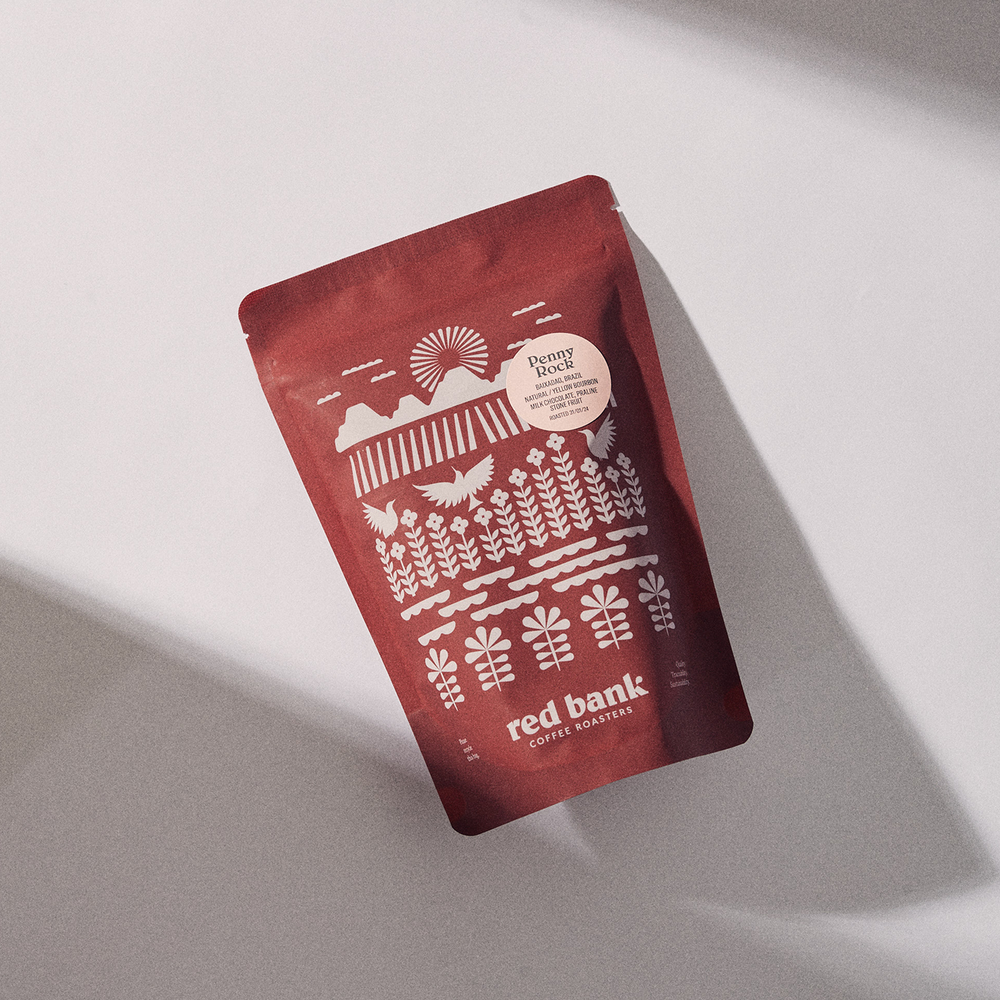Our current decaf is a blend of washed caturra, castillo and colombia, grown on small and medium-sized family farms around Jardín in the south of Antioquia, close to the border with Caldas.
It's sweet and syrupy, with notes of chocolate-orange, honeycomb and butterscotch.



